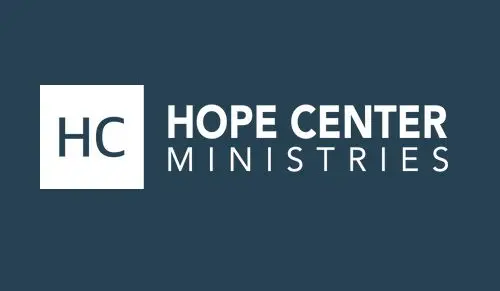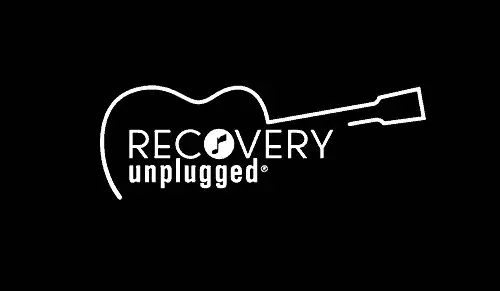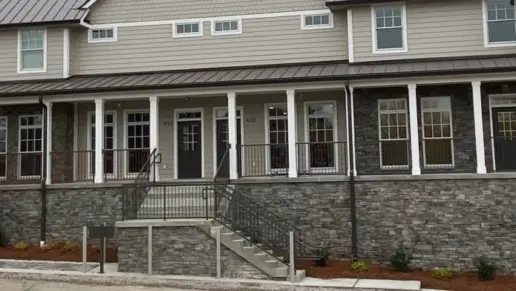Some stuff you definetly need for recovery are prayer, time, and perseverance. Luckily you can get all of those here! I promise there is a light at the end of the tunnel.
About Steppenstone Youth Treatment Center
SteppenStone Youth Treatment Servicesprovides 24-hour residential, day, after school, and outpatient treatment services to at risk youth. SteppenStone Youth Treatment Services is a fully integrated closed treatment continuum specializing in the treatment of adolescent teenage males experiencing emotional and behavioral problems.
In 2003 Counseling and Consultation Services, Inc. opened SteppenStone Youth Treatment Services (SSYTS) to provide a comprehensive continuum of treatment programs featuring year-round residential, day, and intensive out-patient treatment services for behaviorally and emotionally disordered youth who have sexual issues. SSYTS utilizes a cognitive behavioral treatment approach combined with strong family therapy designed to reduce or extinguish dynamic risk factors associated with their risk to re-offend. It is an evidenced based, intensive, clinical treatment program led by a highly trained, experienced, and dedicated treatment team. The clinical team approach to treatment provides a comprehensive treatment milieu to address each youth’s individual emotional and behavioral needs as they explore their sexual issues. These programs serve adolescent boys ages 12 to 17 within a safe therapeutic environment. Individuals that do not meet these criteria will be considered on a case-by-case basis.
SteppenStone Youth Treatment Services’ on-campus residential facility, SteppenStone Youth Treatment Center (SSYTC), is licensed by the Tennessee Department of Mental Health to serve 33 youth. Each resident is provided an individual room and are required to take care of their personal hygiene needs separately to increase feelings of personal safety and decrease opportunities to act out. A high staff to resident ratio (day 1:5, evening 1:5 and night 1:8) along with state-of-the-art technology assures each resident an environment that encourages personal responsibility, accountability, pro-social interaction and the respect for self and others.
Upon admission to SSYTC, the adolescent receives a comprehensive 12-to-16-hour orientation program. Every adolescent participates in a strong behavior management program utilizing logical and natural consequences. The behavior management program is designed specifically to address dynamic risk factors such as personal responsibility, accountability, choices, problem-solving, and decision-making skills. The primary clinical goal of our behavior management program is to establish a healthy pro-social environment that challenges the adolescent to behave and interact differently than when the youth was acting out.
Within 72 hours of admission, the treatment team develops an initial treatment plan. Over the next thirty days, the clinical treatment team will begin assessing and evaluating the presence of dynamic risk factors associated with the adolescent’s acting out. This evaluation is done through clinical contacts as well as the youth’s behavior on the residential unit. Clinical contacts include a minimum of three therapy groups and two skill development groups each week. Group therapy addresses the dynamic risk factors associated with interpersonal social skills, communication, peer relationships, self-respect, and self-worth. In addition to group therapy, each youth receives a minimum of one hour of individual therapy each week. Individual therapy is used to help the youth identify and address ongoing risk factors and development of adaptive coping responses. Along with individual therapy, the youth will participate in family therapy a minimum of twice a month. Family therapy focuses on the supervision, structure, family roles, communication, and appropriate discipline. In addition to receiving family therapy, for youth in our region, and if clinically indicated, in-home family services are also provided to assist the family in incorporating the changes in their home.
Adjunct clinical services include daily therapeutic group activities to assist the youth in addressing peer relationships and managing peer conflict. Each youth participates in peer groups daily to further assist in developing and practicing communication, social, and interpersonal skills. Twice a week the youth participates in motor skill development to address delays/deficits in motor skills. Deficits in motor skills impact body image, self-esteem, and self-worth. Throughout the youth’s treatment, he will develop personal goals on a weekly basis. This allows adolescents to practice self-evaluation, self-care, and personal responsibility for their treatment. Successful completion of weekly goals allows adolescents to participate in goal activities. Success in meeting individual goals quarterly allows adolescents to participate in extended off campus activities.
In addition to the clinical treatment services, Monday through Friday each youth receives 6 ½ hours of education on a daily basis. These exceptional academic services are offered through an on-campus school that is licensed and accredited by the Tennessee Department of Education. SteppenStone Academy operates year-round and provides the opportunity to graduate with a full high school diploma or complete the requirements and testing to receive a General Education Diploma (GED). For many troubled youth their poor performance in school is precipitated by underlying emotional, behavioral and sexual issues. At SteppenStone, the individual academic needs of each student are addressed as an integrated part of their treatment program.
The Day Treatment Program is designed to address each youth’s emotional, behavioral and sexual issues in an environment that provides intensive therapeutic intervention with the identified client and his family/caregivers/support system, while the youth is residing in the community or is transitioning to the community. The Day Treatment Program will be available for clients who are served by SteppenStone Youth Treatment Services’ continuum of care and for clients who are not part of the continuum of care, who do not need residential services, but cannot attend public schools due to their treatment needs. The treatment will be intense and will be individualized to each client. Clients will receive the same clinical and academic services as our residential clients Monday through Friday. However, they will reside with their family/caregivers each night. No services except emergency services will be provided on Saturday or Sunday.
The Intensive Out-Patient Treatment Program is designed to address each youth’s emotional, behavioral and sexual issues in an environment that provides intensive therapeutic intervention with the identified client and his or her family/caregivers/support system, while the youth is residing in the community or is transitioning to the community. Clients in this program will be getting their academic needs met outside of SSYTS. Each youth and/or their families/caregivers/support system will participate in 3 to 4 hours of treatment services per day in the evenings (Monday – Thursday). The number of days they participate in the treatment services is determined by the level of intervention needed to address their emotional, behavioral and sexual issues in an effective manner.
In the spring of 2005, the Tennessee Department of Children’s Services licensed SteppenStone Youth Treatment Center to provide foster care services. Therapeutic Foster Care is a crucial component to the continuum of services already being provided by SteppenStone, allowing day and intensive out-patient treatment services to be an option for youth who do not have family resources. Transitioning back into the community without significant incidents of behavioral and/or sexual problems is a gauge of the internal changes taking place in the youth we serve. Therapeutic Foster Care provides a less-restrictive, structured, safe environment that continues to promote the physical, social and emotional growth necessary in assisting the youth to successfully integrate back into the community from residential care.
In April 2006, SteppenStone Youth Treatment Services was licensed by the Department of Mental Health to open the Summit Center which is located in Johnson City, Tennessee. This facility provides room and board for 10 adolescent boys. There are two residents per room in an effort to begin to integrate them back into a more family-like environment. In the same manner as SteppenStone Youth Treatment Center a high staff to resident ratio along with state-of-the-art technology assures each boy an environment that encourages personal responsibility, accountability, pro-social interaction and the respect for self and others. In 2015, the name was changed to Indian Ridge Group Home and the house is now licensed to provide room and board for 12 adolescent boys.
Another milestone for SteppenStone Youth Treatment Services was becoming Joint Commission Accredited in September 2006. It was reported, SteppenStone Youth Treatment Center was the first Behavioral Health Care accredited program with the specialty of treating sexual behavior problems as their primary focus. This accreditation is verification the youth we serve are being provided the highest quality of care available to address their physical, emotional and behavioral needs.
Located in rural Northeast Tennessee, SteppenStone Youth Treatment Services is nestled in the beautiful foothills of the Appalachian Mountains. It is also in close proximity to the culturally attractive Tri-Cities area consisting of Johnson City, Kingsport and Bristol, as well as Jonesborough, the oldest town in Tennessee. This diversified setting provides numerous social, cultural and recreational opportunities which enhance the quality of our treatment programs being provided to the youth of Tennessee, Southwest Virginia and Western North Carolina.
Latest Reviews
Rehab Score
Other Forms of Payment
Medicaid is a state based program that helps lower-income individuals and families pay for healthcare. Medicaid covers addiction treatment so those enrolled can use their coverage to pay for rehab. When a program accepts Medicaid the client often pays very little or nothing out of their own pocket.
Self-pay involves paying for treatment out of your own pocket. You can use savings or credit, get a personal loan, or receive help from family and friends to fund your treatment. If you don't have insurance or your insurance plan doesn't cover a specific program, self-pay can help ensure you still get the care you need.
Private insurance refers to any kind of healthcare coverage that isn't from the state or federal government. This includes individual and family plans offered by an employer or purchased from the Insurance Marketplace. Every plan will have different requirements and out of pocket costs so be sure to get the full details before you start treatment.
Addiction Treatments
Levels of Care
Treatments
Mental health rehabs focus on helping individuals recover from mental illnesses like bipolar disorder, clinical depression, anxiety disorders, schizophrenia, and more. Mental health professionals at these facilities are trained to understand and treat mental health issues, both in individual and group settings.
Programs

Clinical Services
Cognitive Behavioral Therapy (CBT) is a therapy modality that focuses on the relationship between one's thoughts, feelings, and behaviors. It is used to establish and allow for healthy responses to thoughts and feelings (instead of unhealthy responses, like using drugs or alcohol). CBT has been proven effective for recovering addicts of all kinds, and is used to strengthen a patient's own self-awareness and ability to self-regulate. CBT allows individuals to monitor their own emotional state, become more adept at communicating with others, and manage stress without needing to engage in substance abuse.
Whether a marriage or other committed relationship, an intimate partnership is one of the most important aspects of a person's life. Drug and alcohol addiction affects both members of a couple in deep and meaningful ways, as does rehab and recovery. Couples therapy and other couples-focused treatment programs are significant parts of exploring triggers of addiction, as well as learning how to build healthy patterns to support ongoing sobriety.
Research clearly demonstrates that recovery is far more successful and sustainable when loved ones like family members participate in rehab and substance abuse treatment. Genetic factors may be at play when it comes to drug and alcohol addiction, as well as mental health issues. Family dynamics often play a critical role in addiction triggers, and if properly educated, family members can be a strong source of support when it comes to rehabilitation.
Group therapy is any therapeutic work that happens in a group (not one-on-one). There are a number of different group therapy modalities, including support groups, experiential therapy, psycho-education, and more. Group therapy involves treatment as well as processing interaction between group members.
In individual therapy, a patient meets one-on-one with a trained psychologist or counselor. Therapy is a pivotal part of effective substance abuse treatment, as it often covers root causes of addiction, including challenges faced by the patient in their social, family, and work/school life.
Trauma therapy addresses traumatic incidents from a client's past that are likely affecting their present-day experience. Trauma is often one of the primary triggers and potential causes of addiction, and can stem from child sexual abuse, domestic violence, having a parent with a mental illness, losing one or both parents at a young age, teenage or adult sexual assault, or any number of other factors. The purpose of trauma therapy is to allow a patient to process trauma and move through and past it, with the help of trained and compassionate mental health professionals.
Staff & Accreditations
Staff

Chief Executive Officer

Clinical Executive Director

Clinical Coordinator of Outpatient Services

Director of Program Management

Executive Administrative Coordinator

Board of Directors, Chairman of the Board
Accreditations

The Joint Commission, formerly known as JCAHO, is a nonprofit organization that accredits rehab organizations and programs. Founded in 1951, the Joint Commision's mission is to improve the quality of patient care and demonstrating the quality of patient care.
Joint Commission Accreditation: Yes
Contact Information
110 Steppenstone Boulevard
Limestone, TN 37681


